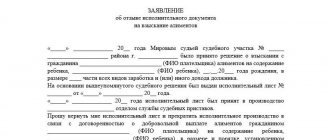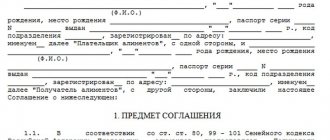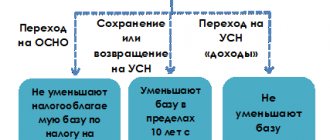How to recover additional expenses for a child, in addition to alimony?
Financial support for the child is the direct responsibility of the parents. Satisfaction of children's needs does not always occur through regular payments established voluntarily or compulsorily. In some cases, there is an obligation to bear additional expenses for the child other than child support.
Is it possible to recover money other than alimony?
The current norms of family law determine the possibility of collecting material resources for the needs of minor children that are not included in the alimony obligations.
Parents have a number of rights and responsibilities that must be observed in accordance with the law. The main functions include:
- care;
- attention;
- financial support for minors (disabled adults);
- comprehensive development;
- education.
Parental responsibilities are shared equally between father and mother, with some exceptions (single mother). The guarantee of parental participation in the life of the child is child support obligations, established compulsorily or voluntarily.
If a difficult situation arises that requires additional costs for the needs of the child in addition to alimony, the legal representative of the minor has the right to recover funds from the child support obligee in a fixed amount.
The list of exceptional cases is provided by the RF IC. The claimant must provide undeniable evidence to satisfy the claim for additional costs to be imposed by the court.
Grounds for collecting additional expenses
Article 86 of the RF IC defines the grounds for collecting additional funds for the needs of the child. These are situations related to the life and physical condition of children:
- serious disease;
- mutilation;
- payment for services to third parties for the care of a disabled child or disabled person;
- others.
The last point, regulated by law, has given many parents the opportunity to take advantage of the chance to receive additional payments for a variety of life situations.
A correctly drawn up statement of claim and argumentation of facts with the provision of evidence help in collecting additional monetary payments in cases not directly provided for in Article 86 of the RF IC.
Methods and form of collection of additional charges. funds
According to the norms of the current legislation, payments for the collection of additional expenses for the needs of children take the form of a fixed sum of money, determined by the judicial authority in the procedure of claim proceedings.
The fixed size is affected by the following circumstances:
- financial situation of the father and mother;
- the fact of fulfillment of alimony obligations established voluntarily or compulsorily;
- the amount of monthly maintenance of a minor from the person liable for alimony;
- Marital status of each parent:
- children born in the next marriage after divorce;
- dependents;
- argumentation of the required amount of additional funds;
- other circumstances requiring attention, in the opinion of the parties.
Collection of additional expenses is made in 2 ways:
- Voluntary – drawing up a mutual agreement between the child’s parents, certified by a notary. The structure of the written document must correspond to the following points:
- personal data of participants in legal relations;
base;
- calculation of the amount of additional payments;
- rights and obligations of the parties;
- conditions, method and procedure for making payments;
- algorithm for making changes and additions to the text of the contract;
- responsibility;
- reasons for termination of payments;
- details of the recipient and payer;
- date of signing.
Conditions for signing a child support agreement:
- mutual consent of the recipient and the payer;
- mutual benefit;
- joint visit to the notary.
The use of this option involves paying for notary services for registration and certification of agreements. The agreement has the force of an executive document.
- compensation for the funds actually spent by the plaintiff;
current payments.
Peculiarities of consideration of the case in court:
- equality of the parties;
- preference for the interests of a minor child;
- assessment of the degree of need;
- proportionality of payments;
- reasonableness;
- determining the regularity of payments - for a certain period or indefinitely;
- additional form expenses - a fixed amount of money.
Collection procedure
Additional expenses are not included in child support obligations in favor of a minor or disabled child. However, it is possible to begin the process of withholding such payments simultaneously with the case of alimony.
If the alimony obligee evades the provision of additional material support, the legal representative has the right to recover the necessary funding through the court in the following order:
- Filing a claim:
- drawing up a document in accordance with the procedural form;
- collection of documents.
- Opening of proceedings – judicial determination:
- initiation of a case;
- preparation period for the trial;
- basis (cause) of the dispute.
- Preliminary hearing:
- determination of the list of questions;
- submission of requests by interested parties, presentation of evidence and objections.
- Judicial review:
- presence of the parties (reasons for non-appearance);
powers of participants, conditions of the hearing;
- examination and evaluation of evidence and oral testimony.
- Decision-making.
- Collection.
You should understand the significant difference that alimony is a mandatory payment, and additional payments. expenses - no. This is just a right provided for implementation in specific cases. The plaintiff must prepare with maximum responsibility for the proceedings, excluding the possibility of refusal to satisfy the claims.
The result is a writ of execution, which is the basis for forced collection of alimony from the person liable for alimony by the joint venture service. This stage is identical to the procedure for receiving alimony payments. In the event of a voluntary refusal to comply with a court decision by the payer, there are measures of a different nature:
- restriction of freedom of movement when traveling beyond the state borders of Russia;
- seizure of property;
- deduction from wages made by the employer.
If additional funds are not paid in favor of a minor or disabled child, the following will not apply:
- accrual of penalties;
- criminal liability.
Where to contact?
The court is involved in a family dispute if there is no possibility of a peaceful settlement of the issue. The choice of the competent institution is determined by the rules of civil procedure.
The statement of claim is filed in the magistrate's court in accordance with the rule of alternative jurisdiction: at the place of residence of the plaintiff or defendant.
According to Article 106 of the RF IC, the applicant can be an adult child in need of financial assistance. If there is a fact of incapacity due to mental illness, the plaintiff is the legal representative.
How to make an application?
A statement of claim that meets the requirements of the Code of Civil Procedure of the Russian Federation is submitted to the court office. A document with errors, unclear corrections, or contrary to procedural rules is the reason for return.
The claim has an inherent price element, which requires comprehensive objectivity when considering the case in the course of the claim proceedings. The application writing scheme meets the following points:
- “Header” (upper right corner of the first page):
- name of the competent authority;
- personal data of the parties to the process;
- actual place of residence of the parties (registration), means of communication (mobile, landline phone number, email, fax);
- information about children (full name, state registration).
- Descriptive part:
- marital status (registration actions);
- children together (with whom they live);
- description of the subject of the dispute;
- evidence base;
- determination of the amount of additional payments (features and principles of calculation);
- cost of the claim (frequency and duration of monetary support);
- applications.
- The operative part is the requirement to collect additional expenses.
Proper execution determines the essential conditions when drawing up a document:
- official business style;
- prohibition on the use of obscene terminology;
- objectivity;
- brevity;
- restraint;
- accuracy;
- chronology of events.
The application is duplicated 3 times: one copy each for the plaintiff, defendant and court.
Required documents
Each copy of the claim is accompanied by documentation confirming the circumstances of the particular case, which includes:
- passport data of the parties to the process;
- legal confirmation of the conclusion, divorce, birth of joint children;
- a certificate of the quantitative composition of the family, certifying the child’s place of residence;
- confirmation of the relationship between the payer and the minor;
- information about the income of the plaintiff and defendant;
- medical certificates: about the disability group, about the presence of a serious illness;
- MSEC conclusion;
- receipts received as a result of the purchase of drugs for treatment;
- list of medications for upcoming expenses.
Copies of applications are subject to certification in the prescribed manner. Participation in court proceedings by third parties obliges the plaintiff to prepare an additional copy of the documents.
Providing other official documents is not prohibited. If the information is not enough to make an objective decision, the court is competent to request additional material from officials.
You do not need to include a receipt for legal fees with your application. According to Art. 333.36 of the Tax Code of the Russian Federation, the applicant is exempt from paying state duty. Court fee established by Art. 333.19 of the Tax Code of the Russian Federation, in the amount of 150 rubles, is recovered from the defendant.
Arbitrage practice
As a rule, when establishing additional funding for the benefit of a child, the court divides the required amount into equal parts between the parents. But there are exceptions.
The distribution of parental responsibilities in the area of financial support for minors is carried out taking into account specific circumstances. It is possible to make a decision to reduce or increase the amount of the defendant’s monetary obligations required in the statement of claim. The basis is the income of the parties and the argumentation.
As judicial practice shows, when considering the need for additional expenses, the share of the child support holder (usually the father) is much higher. The explanation is the lack of employment opportunities for the mother in the case of constant care for a sick child.
Additional recovery amount funds in some cases can reach half of the earnings received.
Example
Citizen Maslova V.A. has been raising a disabled minor child since childhood. The father is appointed as the payer of alimony, but does not fulfill his obligations.
The ex-wife again went to court demanding payment of the debt and collection of additional expenses for the upcoming operation for her son. Maslova V. A.
unable to independently satisfy the child’s material needs, as he is unable to find a job due to round-the-clock child care.
The court, having examined the case materials, satisfied the claims and established a fixed amount of additional funding. The FSSP applied with a writ of execution to the employer of the alimony obligee with the aim of forcibly deducting the amount of current obligations and repaying the debt.
Is it possible to recover additional funds? child's education?
The law does not directly prohibit the right of a child’s representative to demand financial resources for the minor to receive additional education.
Despite the primacy of children's interests, such demands will be refused due to the lack of a vital need for the implementation of a paid educational process.
If your child is often sick
If there is no degree of disability in a frequently ill child, the court may recover additional expenses from the parent under certain conditions:
- presence of a serious diagnosis;
- the need for surgical intervention;
- purchase of expensive medications;
- conducting surveys.
In this case, the court will take into account:
- alimony obligations;
- parents' well-being;
- privileges and benefits provided at the state and municipal level;
- money spent on treatment.
Payment for a sea holiday
The requirement to recover financial support for a sea holiday can be satisfied if there is a professional recommendation from medical personnel (attending physician) - a referral to a rehabilitation sanatorium.
The court will consider and evaluate issues of cost, participation of other relatives in financing and make an objective decision.
Are additional options possible? collections after 18 years?
The law provides for the appointment of additional funding in favor of children who have reached the age of majority in the presence of circumstances provided for in Article 86 of the RF IC.
The recovery of financial assistance is established by the court, taking into account the balance of rights and obligations of all interested parties.
Conclusion
Let's summarize:
- The law establishes the possibility of collecting additional funds for child support, except for alimony.
- Funds can be paid voluntarily or forcibly collected.
- Payments are collected through legal proceedings.
- The plaintiff must prove the need for this support for the child (surgery, treatment).
- The court will take into account the payer's capabilities when assigning payment. Not in every case the plaintiff’s demands are satisfied.
If you believe that child support payments do not cover the necessary expenses for the child, then you can seek assistance for additional expenses. To do this, you need to contact a lawyer to file a claim. Our website specialists will provide advice on all the nuances of this process.
Source: https://SocPrav.ru/kak-vzyskat-dopolnitelnye-rashody-na-rebenka-pomimo-alimentov
Collection of additional expenses for a child under Art. 86 Family Code
As we wrote earlier, the State Duma of the Russian Federation adopted changes to Article 86 of the Family Code of the Russian Federation (FC RF), which regulates the court’s involvement of parents in participating in the payment of necessary additional expenses for the child.
If you are only interested in frequently asked questions and answers on this topic, then feel free to skip to point 5 of this article. The algorithm for collecting additional expenses is from clause 2. Samples of the statement of claim and Objections to the statement of claim - clause 6.
articles:
1. What changes and what is the status of the bill?
2. Algorithm for obtaining funds for additional expenses
3. How will it be applied?
4. Complex and pressing issues of application of the new edition of Article 86 of the RF IC.
5. Sample documents:
statement of claim for the recovery of additional expenses;
objections to the statement of claim.
What changes and what is the status of the bill?
These changes concern the child's rights to housing. This means that if, after a divorce, a child remains to live with one of the parents, and he, for example, has lost income and can no longer pay rent or for other reasons may lose his home, then such a parent will have the right to file a lawsuit to recover money amounts for additional expenses from the second parent.
Previously, judicial practice developed in such a way that the courts recovered sums of money for additional expenses from the second parent only in the event of some serious illness or injury to the child that required additional expenses.
At the moment, the law has been signed by the President of the Russian Federation and on February 6, 2020 officially published on the portal www.pravo.gov.ru. This federal law will take effect on February 17, 2021.
(1) Determine the amount of required alimony and additional expenses.
According to paragraph 1 of Art. 61 of the RF IC and clause 1 of Art. 80 of the RF IC, parents are obliged to financially support their children, and also have equal rights and responsibilities in relation to their children. From these norms of Russian family legislation it follows that parents are obliged to equally support their children.
Therefore, if you have lost income or for other reasons may lose the home in which you live with your child, you first need to calculate the amount per month that you will need to receive from the second parent (basic alimony) and file for collection.
And then calculate additional costs in accordance with your circumstances and recover them through the court. Focus on half of the actual costs of maintaining the apartment, since the court will proceed from equality of parental responsibilities.
(2) Try to discuss this situation with the second parent and sign an Agreement with him on the payment of child support and additional expenses for the child's maintenance
If there are no disagreements between the parents, Russian family law provides for the possibility of concluding an Agreement on the payment of alimony.
The amount and procedure for paying alimony can be established in different ways.
The amount can be calculated as a certain percentage of the income of the second parent (at least a quarter), or can be set as a fixed amount (for example, 20 thousand rubles every month or in the amount of the subsistence minimum).
The amount for additional expenses is set only in a specific amount (no percentage of income). Methods of paying alimony can also be different: you can pay in cash, you can transfer money to a card.
Important! The agreement to pay alimony must be certified by a notary, only in this way it becomes valid and will have the force of a writ of execution.
(3) If negotiations do not produce results, we go to court
According to the updated paragraph 1 of Art. 86 of the RF IC, if the parents do not agree on additional expenses and in the absence of residential premises suitable for permanent residence, the court has the right to force each of the parents to bear additional expenses.
To go to court, you must collect documents confirming the occurrence of exceptional circumstances (a dismissal order, an order to transfer to a lower rate, a document confirming a fire in the apartment or the need for eviction, a certificate from the bank about the lack of funds in the accounts, etc.).
You should also prepare copies of the child’s birth certificate; marriage and divorce certificates (if available); a document confirming the child’s residence with you; documents confirming financial and marital status, presence of dependents, etc.
Then you will need to draw up a statement of claim according to the rules of the Civil Procedure Code of the Russian Federation and be sure to indicate the following there:
a) the name and address of the court where the claim is filed;
b) information about the Plaintiff and the Defendant;
c) information about what constitutes a violation of rights or only a future violation, as well as the circumstances that justify the legality of the requirements (the presence of exceptional circumstances);
d) the request for payment of alimony and additional expenses and the calculation of this amount;
e) information about the financial and marital status of the Plaintiff and the Defendant, the presence of dependents, etc.;
f) a list of attached documents and proof of sending to the other party.
After this, it is necessary to send the second parent a copy of the statement of claim and attached documents, which he does not have, and also indicate this in the Appendix to the statement of claim.
! There is no need to pay state duty for claims for alimony.
The completed statement of claim and the documents attached to it must be submitted to the office of the district (city) court at the place of residence of the Defendant or Plaintiff, at your choice. These documents can be submitted either personally or through a representative if you issue a power of attorney for him.
The court will accept the documents for consideration and set a date and time for the court hearing, where you will be invited by summons by mail or other means.
You must participate in the court hearing in person or send a lawyer in your place by proxy, then after the time for appeal has expired, you must receive the court decision.
Important! The court decision to collect alimony is subject to immediate execution. This means that, if necessary, you can immediately ask the court to issue you a writ of execution, without waiting for the appeal period to pass.
How will the law be applied?
The changes will only come into force at the end of the month, and of course, for now we can only speculate about how they will be applied in practice.
However, it is already clear that the court will establish the amount of alimony, taking into account the financial and marital status of both the Plaintiff and the Defendant, as it did when determining the amount of additional alimony for the treatment of the child.
This means that the court will examine the following facts: the amount of income of the Plaintiff and the Defendant, marital status and the presence of other children or dependents, etc.
In Article 86 of the RF IC, these important circumstances are not limited, that is, these may be “other interests of the parties that deserve attention.”
Also, the court will establish alimony only in a fixed amount of money, that is, there is no talk of any percentage of income.
Questions are raised by the contradictory wording of the article itself. In paragraph 1 of Art. 86 of the RF IC, an exceptional circumstance is called “the absence of residential premises suitable for permanent residence,” which from a literal interpretation can be understood that under this article alimony can be recovered only when there is no longer housing and the parent and child do not have a place of residence at all.
On the other hand, in paragraph 2 of Art. 86 of the RF IC stipulates that the court can recover from parents additional expenses already incurred, as well as “expenses that need to be incurred in the future.”
(1) How much will the other parent need to contribute to the cost of housing for the child?
It is necessary to assume that both parents are obliged to pay for the child’s accommodation in equal shares, unless the court additionally establishes the obligation to support the child’s mother.
Let's look at an example. The mother lives with 2 minor children and has no source of income and savings, rents a 2-room apartment and went to court to collect additional expenses from the children’s father in the amount of a month’s rent for rented housing.
The court will satisfy the application partially, in a fixed amount, in the amount of ⅓ of such total expenses for the apartment, since 3 people live in the apartment, and children account for ⅔ of such expenses, while the father’s expenses will be half of the ⅔, i.e. ⅓ of the total fee for a rented apartment.
(2) Will the ex-spouse be required to pay additional housing costs for the child if his place of residence is determined with the father?
Yes, she will be obliged, since in this case the Family Code of the Russian Federation does not make a difference between parents by gender. If there is no agreement between the mother and father to recover such expenses, the father will be obliged to apply for recovery to the court.
(3) Will the other parent be forced to pay the mortgage taken out by the parent with whom the children live?
Article 86 of the Family Code requires payment of living expenses for children, and not the purchase of real estate by the second parent. Consequently, the parent will be required to cover only half of the expenses of the market rental price of this apartment, in the share attributable to his children.
Let's explain with an example. Mom lives with 3 minor children and has no source of income and savings, pays a mortgage for a 2-room apartment, a loan is issued for her, just like a mortgaged apartment. The mother of the children went to court to collect additional expenses from the father of the children in the amount of the monthly mortgage payment.
The court will satisfy the application partially, in a fixed amount, in the amount of ⅜ of the expenses for the apartment, since 4 people live in the apartment, and children account for ¾ of such expenses, while the father’s expenses will be half of ¾, i.e.
⅜ of the total market rent for such an apartment. If the court accepts the market valuation of the rental of such an apartment as 10,000 rubles, in this case the father will be charged 3,750 rubles. additional expenses monthly (⅜ from 10,000 rubles).
(4) Are “housing alimony” collected by bailiffs automatically if “ordinary alimony” has already been collected?
No, you must submit a separate claim.
(5) Is it possible to collect “housing alimony” from a parent if he does not even pay the usual ones?
Yes, sure. In essence, this is the collection of additional expenses, and if the father does not have an official income, then this is not a basis for the court to refuse to collect both alimony in a fixed amount and additional expenses.
How to do this is disclosed in our article.
(6) Can a parent recover future living expenses for the child?
Let's consider a situation in which, after a divorce, the child remains to live with his mother, and they live in a rented apartment. Her salary is small, and she has not been able to save anything; most of her salary goes to renting an apartment and everyday expenses. Arriving at work, she receives a dismissal order.
According to the terms of the lease agreement, if she doesn’t pay, then in a month she and her child will end up on the street. She only has money in the bank for one month of rent, and she will be looking for a new job for at least several months.
That is, in fact, at the moment she and her child still have housing and the question arises - can the mother now file a claim in court to collect additional alimony? Moreover, the court will schedule the first hearing in at least a month.
Common sense dictates that maybe she shouldn’t wait for the day when she and her child will be on the street. Moreover, if you take into account clause 2 of Art. 86 of the RF IC, which allows the recovery of “future expenses”.
However, whether this will be enough for the court, we will see only after the formation of the judicial practice itself.
In what cases do you need to pay extra?
This is stated in Art. 86 of the Family Code of the Russian Federation. The list of reasons is as follows:
- Money is needed for the child's treatment. We are talking about cases where there is a serious illness. It is difficult to clearly distinguish between severe and non-severe diseases. Moreover, if the claimant, payer and judge do not have a medical education. However, one of the most important pieces of evidence in the case is the medical report. In addition, the court determines how much money and within what time frame must be collected in order for the treatment to be quick and successful. All expenses are taken into account: for maintaining a satisfactory condition, treatment, rehabilitation, etc. Obviously, treatment is now very expensive. Therefore, if children get sick, most of the family funds are spent on medicines.
- Funds are needed to care for the child. For example, in cases where a minor has been seriously injured. Again, the court makes a decision on the need for additional payments or the absence of such a need, based on the specific life situation.
USEFUL INFORMATION: Determination of shares when dividing the common property of spouses: sample agreement
It should be noted that this list is not exhaustive. The ex-husband’s obligation to pay additional money for the child to his ex-wife may also arise as a result of a combination of other circumstances.
Advice to ex-wives is to try to demand payments from the fathers of children in any situation when the child needs it. There is no state fee for filing a claim in court. Consequently, even if the claim is denied, the mother of the minor will not suffer any financial losses.
It is important to note that additional money so necessary for the child can be collected:
- to receive compensation for existing expenses;
- to obtain funds for future expenses.
Let us remind you that with the collection of alimony, things are different. The father is obliged to start paying child support only from the moment the claim is filed in court. In rare cases, it is possible to recover alimony for the past three years if the ex-wife asked for payments, but the father of the son or daughter refused. Of course, if there is evidence of this.
With the payments discussed in this article, everything is different. For example, a child is planning to undergo a complex, expensive operation. The ex-wife, with whom the minor lives, can roughly calculate the amount of expected expenses and ask the spouse to allocate funds. If he refuses to pay, then the court will determine whether the man is obliged to give money, and if so, in what amount.







